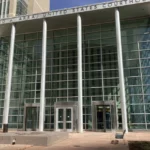In a surprising twist of diplomatic relations, South Sudan has recently announced the revocation of visas issued to American citizens in its territory. This decision has raised eyebrows across the globe and sparked concerns about fairness and the broader implications for international relations. The revocation appears to stem from a case of mistaken nationality, making the situation even more unjust and creating unnecessary tension between the two nations.
At the heart of the controversy is a controversial measure implemented by South Sudan’s government, which has taken issue with alleged violations of sovereignty by foreign nationals, particularly those from the United States. Minister for Foreign Affairs and International Cooperation, Beatrice Khamisa, initially justified the revocation as a response to actions that undermined South Sudan’s national security. However, many observers argue that the reasoning lacks substantial evidence, pointing instead to a case of mistaken identity influencing the decision.
The irony of the situation is not lost on analysts, as South Sudan is a nation that struggles to find its footing amidst ongoing internal conflict and political instability. The government’s decision to revoke visas could be seen as an attempt to rally domestic support by projecting an image of strength against perceived foreign interference. Yet, in doing so, it risks alienating one of its important allies.
Moreover, the impact on American citizens living or working in South Sudan has been immediate and significant. For many of these individuals, their time in South Sudan is not only a career endeavor but often involves humanitarian work and community development. The sudden revocation of their visas disrupts essential services and projects that directly contribute to the nation’s recovery and rebuilding efforts. For instance, numerous NGOs focused on delivering humanitarian aid, education, and healthcare are now facing unprecedented challenges in fulfilling their missions.
The current situation reflects a broader issue of miscommunication and misunderstanding between South Sudan and the United States; rather than fostering collaboration and support, it perpetuates a cycle of distrust. Many American citizens point out that visa issues should be handled through dialogue and negotiation rather than unilateral decisions that abruptly sever ties. An evident case of mistaken nationality further complicates the narrative. Reports indicate that several individuals impacted by the visa revocation do not share the nationality associated with the previous allegations against foreign nationals.
Human rights advocates express concerns about the implications of such actions on freedom of movement and the treatment of foreigners in the nation. As a young country still grappling with its identity, it is crucial for South Sudan to establish a partnership-based relationship with other nations, particularly those like the U.S., whose support is vital for its ongoing development.
To resolve the current impasse, diplomatic channels should be explored for dialogue rather than escalating tensions through blanket visa revocations. Engaging in discussions that clarify misunderstandings about nationality and intentions could open pathways for more constructive relationships moving forward.
In conclusion, South Sudan’s decision to revoke visas for American citizens, particularly based on a case of mistaken identity, is not only unfair but detrimental to the progress of both nations. It stands as a reminder that clear communication and cooperation are essential in the complex landscape of international diplomacy. As South Sudan continues to evolve, prioritizing partnership over perceived threats will be crucial in navigating its future.
Email Us on editorial@nnafrica.com













